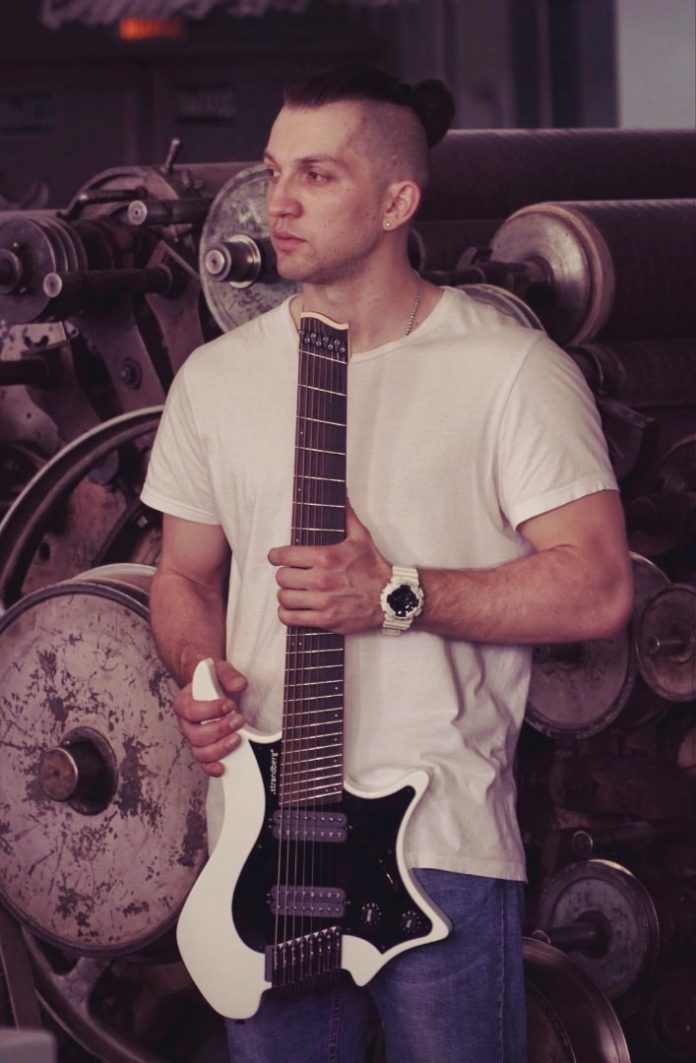Regardless of evolution of music genres, fads, and trends of music industry in general the ability to play well was always an important factor. Today we meet with Dmitry Chaplin. At the age of thirty Dmitry has become one of the forerunners of the new breed of musicians that contribute to the evolution of modern sound. Complex and expressive music is his trademark and the music that he writes is addictive.
Reporter:
You have grown up in Russia. What are the main differences between life in Russia and USA?
Dmitry:
I have lived in Russia almost all my life, and I like that country and its people. I have many friends back home but right now I understand that I need to develop and advance my music career further. I find America is the perfect country for me at the moment.
Reporter:
Do you think people are different?
Dmitry:
Well of course. But people in arts, such as music, literature or visual art are very similar. I believe that there is one “Chekhov’s Soul” if you know what I mean, and people on the planet yearn for happiness.
Reporter:
One of your trademarks is the fen-fretted eight strings guitar. Are all your instruments are custom made to order and why do you prefer custom over a traditional standard six-string?
Dmitry:
No, not all of them are custom made. I have a signature eight-string guitar from Strandberg. It is called graphite. I also have an Ibanez RG2220 which is lower tuned eight-string. I’ve got some custom instruments too. The eight-string setup gives me more options for chord voicing, it expends arpeggios, and allows me to use bass technique which does not work on a standard six-string guitar. Now this has become a necessity for my style.
Reporter:
Do you get more creative freedom using the eight-string when you compose the new material compared to a standard formula and structure?
Dmitry:
Yes. There is a degree of freedom which comes with self-learning and experiment. That is because I develop my own interpretation of the modes and harmony and how it all works together. With that comes freedom, so to speak. It comes with understanding of the harmony and chord theory. At some point I realized that perhaps the fact that I am self-taught holds me back, that’s why in 2000 I went to a music school in Davydovka. That expended my horizons and creative freedoms because I started not just experimente, but rather combine the experimentation with understanding.
Reporter:
Your music can be somewhat abstract. Has jazz influenced your music in anyway? Did you listen to jazz a lot?
Dmitry:
Ney. I did not listen to jazz all that much until I went to music school. I do now, however I do not listen to any freestyle jazz. That is a bit too much for me.
Reporter:
When you record at the studio, do you ever wonder how you will pull it off live?
Dmitry:
Well Yes. Today with the playback software and hardware available I do not have to perform everything in real time. The modern tools help in creative compositions too. For instance, when I compose, I can set the bar higher than my current ability. I would come up with parts and track them in small increments. Play it back and decide what I want to go after it and then track the next bit and the next. This way I do not have to invent and learn the whole composition at once before recording it. I have the freedom to experiment with different pieces, move them around and when I am finally happy with the result I go back and learn the whole thing so that I can perform it live from the top. In the end that made me a much better guitar player and it allow me to make compositions that I could not think of right off the bat.
Reporter:
Can you describe your daily practice routine?
Dmitry:
This has changed over time. Back in the day I did a lot of exercises with metronome. Exercises such as sweep-picking, economy-picking or alternate-picking. This was good and necessary training for the base mechanical technique but had little to do with music. Later when I went to music school the classical approach entered the routine along with the side-reading of the music notation. Today I am not at school anymore and my practice routine revolves around practical things I have to do live.
I have to keep-up my chops. This requires playing every day. A lot of that stuff is at the pick of my current technical ability. I mostly work on the parts that I fill might give me some grief during the live performance. I also try to keep an open mind for new concepts. Right now, I am experimenting with variations of Lydian modes, such as Lydian augmented, minor and diminished mode. They are useful during improvisation. I am learning slap technique, sort of Victor Wooten style slap stuff. I write some riffs, bits and pieces that accumulate in eventually some of them are used in tunes.
Reporter:
You do not strike me like a cliché metalhead. Do you ever get grief from the metal crowd for not conforming?
Dmitry:
I dress and look this way because I like it. It feels comfortable. I do not need to project my adherence to a specific genre of music through the closes I choose to wear. By now people in the metal community know what I look like and come to except me this way. Sometimes they make fun of the way I look, but in a positive way. Yes, my closes have nothing to do with metal. So what? Perhaps I compensate for that with my music. Perhaps that provokes people, if so – Good!
Reporter:
Are you into art at all?
Dmitry:
Yes. Drawing was my passion. I am fairly good at sketching, but I have not done it in a long time now. Basically, if I can’t be very good at it, I do not spend much time on it. I excelled at guitar and music, but I am bad at basketball. It is not enough for me to do something just for fun. I have to be really good at it or not do it at all.







